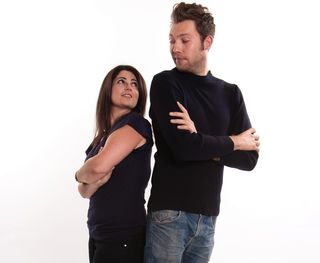5 Things a Person's Voice Can Tell You

Introduction

When a person picks up the phone, it's natural to make a few assumptions about the voice on the other end of the line. And though forming judgments about people based on such scanty information may not be the best idea, researchers are revealing that people's voices can reveal quite a bit about them.
From a person's sexual orientation to his or her height, here are five things to learn from hearing someone's voice.
Sexual orientation

"Gaydar" may be a real thing. A 2011 study found that listeners could pinpoint men who identified as gay at better-than-chance rates. When participants heard the men say two-syllable words, their accuracy increased to 75 percent. The key information seemed to be contained in the vowel sounds, though the researchers weren't sure exactly what part of that information helped identify sexual orientation. [5 Myths About Gay People Debunked]
Tall voice

Height can also become apparent just by listening to someone's voice, according to a study presented at the 2013 Acoustical Society of America meeting. Participants who heard just a few lines spoken could distinguish the tallest of two speakers about two-thirds of the time, and could also put a group of five people in order according to their heights with fairly good accuracy. (The ratings were between voices of the same sex.) A key to deciphering height may lie in pitch, particularly how deep someone's voice is; even so, other factors may play a role as well. Taller people tend to have deeper pitches.
Age clues

People are also surprisingly good at determining a speaker's age just by hearing the person's voice. In a 2010 study detailed in the Journal of Social, Evolutionary and Cultural Psychology, researchers asked 97 people to listen to 100 samples of speakers ages 2 through 67. Overall, listeners tended to underestimate a speaker's age. People performed worst at guessing the age of male speakers between ages 45 and 65, but did better with menopausal women, the study found. Listeners aced the portion identifying kids and teenagers, though the accuracy of their age estimates tended to drop off as the age of the speaker increased.
Disguise foiled

It turns out that the human brain isn't so great at deciphering everything from a speaker. A study presented at the 2013 meeting of the Acoustical Society of America found that a computer algorithm could beat real humans at detecting voice actors who were disguising their voices. (The actors were strangers to the listeners who are trained to disguise their voices.) The trick? The computer used the variability in the frequency of sound coming from the vocal tract to expose the fakers.
Sex appeal

Sexiness may also be conveyed in a person's voice, but the person's ability to produce offspring doesn't seem to be easily picked up in speech. Men go for women with higher-pitched, breathy voices that tend to go with a smaller body size, according to a 2013 study in the journal PLOS ONE. Women tend to prefer men with lower-pitched "manly" voices. But those manly voices may not predict a good mate: A 2013 study in the same journal found that men with lower-pitched voices tended to have lower sperm quality than their higher-pitched counterparts.
Sign up for the Live Science daily newsletter now
Get the world’s most fascinating discoveries delivered straight to your inbox.

Tia is the managing editor and was previously a senior writer for Live Science. Her work has appeared in Scientific American, Wired.com and other outlets. She holds a master's degree in bioengineering from the University of Washington, a graduate certificate in science writing from UC Santa Cruz and a bachelor's degree in mechanical engineering from the University of Texas at Austin. Tia was part of a team at the Milwaukee Journal Sentinel that published the Empty Cradles series on preterm births, which won multiple awards, including the 2012 Casey Medal for Meritorious Journalism.
